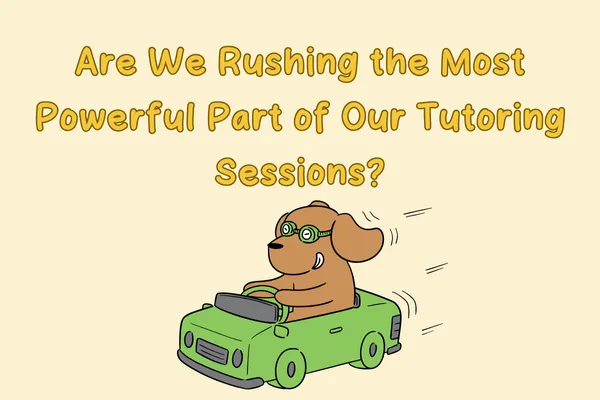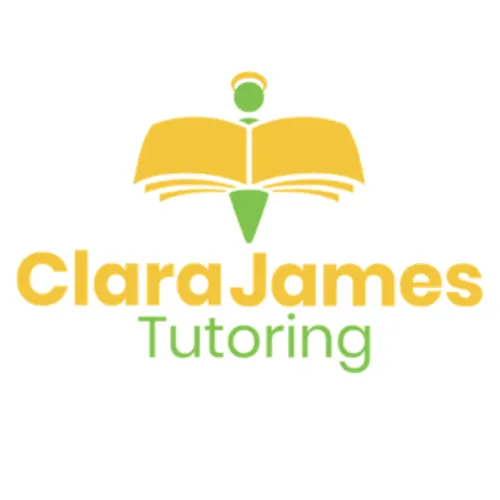Clara James Tutoring
BLOG POSTS

Are We Rushing the Most Powerful Part of Our Tutoring Sessions?

Are We Rushing the Most Powerful Part of Our Tutoring Sessions?
The other day, I was on a training course and something that was said in a completely different context, really made me think.
It reminded me of how we used to treat exercise books at school.
At the start of the year, we’d be given a brand-new book. The first page? Spotless. Neatly written. Carefully thought out.
The middle of the book was "fine", with good intentions.
But by the end? It was a mad dash to fill the pages and hand it in: messy handwriting, rushed answers, anything to get it finished.
And I realised…
Sometimes, we approach tutoring the same way.
From Preparation to Delivery… Then Gone
We put real care into preparing our lessons.
We arrive focused and deliver them with heart.
And when the session’s over, we often dash off — onto the next child, the next appointment, or back home to squeeze in prep before tea.
It’s completely understandable. We’re busy, often spinning multiple plates.
But in doing so, we might be skipping the most powerful part of the whole process:
That small moment at the end where we connect with the parent.
The Power of a Quick Chat
A few minutes to say,
“They worked really hard today.”
“We had a breakthrough with those times tables.”
“They were a bit tired but still gave it their best.”
It might feel small, even inconsequential, but those moments are priceless. They help parents:
Understand the progress their child is making
Feel confident in what they’re paying for
Trust you as a partner in their child’s learning
And selfishly? As a business owner, I can’t help but believe there’s a strong correlation between those little conversations and:
Ongoing bookings
Referrals to other families
A lasting, loyal relationship
Are You Missing This Opportunity?
It’s easy to think our job ends when the lesson does.
But sometimes, it’s what we say after the lesson that leaves the biggest impression.
So this week, share a sentence.
Let parents into what happens in the lesson, the thing they don’t always get to see.
It’s a tiny shift, but one that could make a world of difference.
Thinking of Becoming a Tutor?
If you’re just starting your journey as a tutor, or wondering if it’s the right path for you, I’ve put together a free Tutor Starter Kit full of practical tips, reflection prompts, and printable tools to help you get started with confidence.
Download the free Tutor Starter Kit here
I hope it helps
Morning,
I hope the week is going well.
So many people seem to be doing D of E and work experience
at the moment, good luck if that’s you and if you’re at Marlow Camp next
fingers crossed for good weather!
I’ve just finished a lesson on division. It seems to be
something that messes with the brains of so many people.
I found it got easier when I stopped thinking about it as
division and instead thought about it as multiplication. So, if for example I
had the question 396 divided by 3, I would look at it as 3x what = 3. My answer
would be 1. How many times would I need to multiply 3 to get to 9, (my answer
would be 3). Then 3x something = 6. My answer would be 2. Giving me the overall
answer of 132.
I know that’s a really simple example but hopefully it explains
my point.
Thankfully in schools they don’t often seem to need to do
long division, but I’ve worked with a couple of adults (generally nurses for
some reason) who have needed it.
I think I’ll explain this one in a video, as it will be too
complicated to explain it with words as bits get put all over the place. I hope
this makes sense though:
Enjoy the rest of the week and speak soon,
Dawn

